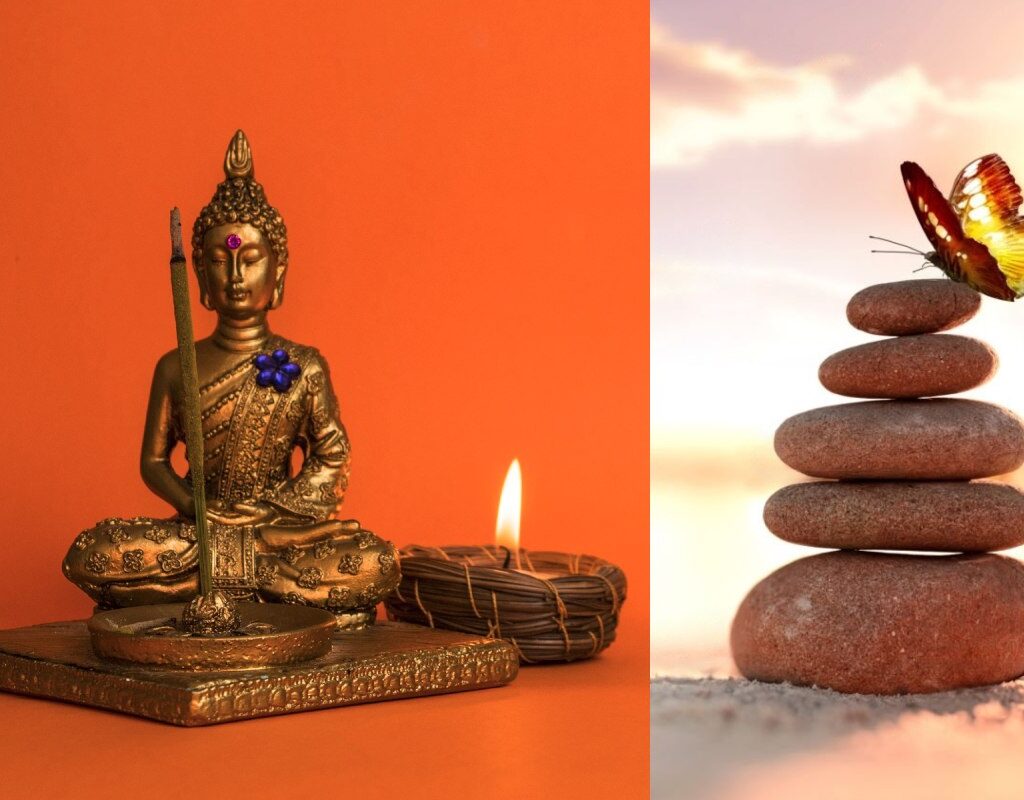Have you ever encountered the saying ‘you reap what you sow’? This fundamental principle, deeply embedded in Buddhist philosophy, is the very engine that drives karma. But how can we interpret karma? How do our past, present and future choices and deeds influence it? Explore the answers as we traverse the realm of Buddhist principles and their potential to help reshape your understanding of karma.
The Role of Buddhism in Comprehending Karma and Enhancing Life
Karma, often viewed as the reflection of our previous actions, may not always be evident in our personal experiences but its influence frequently manifests in others’ situations.
Consider the agonizing betrayal felt by someone who once cheated or the swift decay of a stolen item bought for its appealing price—these instances seem to follow a karmic narrative.
Many people tend to equate karma solely with liabilities passed down from previous lives. However, in the context of Buddhism and considering Newton’s third law of “cause and effect,” every action triggers a reaction.
The Confluence of Karma: Bridging Buddhism and Hinduism
With a global population of 8.5 billion, humanity is largely divided among monotheistic and polytheistic religions. Regardless of one’s belief in a single god or many, there exists an inherent human desire to trust in a higher power guiding our destinies.
This deep-seated sense of spirituality, the pursuit of a transcendent understanding of reality, expresses itself in myriad ways, one of which is the concept of karma.
The ‘Butterfly Effect’ in Our Existence
Life is an intricate web of interactions and every action, no matter how minuscule, sends ripples across the waters of our existence. From a distracting text message preceding a car accident, a carelessly discarded object affecting someone else, to an unintended email sent to an old rival—all bear consequences.
Causality and karma interweave in this complex tapestry of interdependencies. An unforeseen encounter or a fortuitous event is viewed by many not as mere coincidence but as strands in the vast web of karma.
Understanding Karma through Buddhist Philosophy
Buddhist philosophy categorizes karma into three classifications:
- Prarabdha karma: This is emotional karma, an immediate and instinctive reaction, like the satisfaction or disappointment felt after executing an action.
- Sanchita karma: This is mental karma, lingering in our memories, whether pleasant or unpleasant and it often preoccupies us.
- Agami karma: This is physical karma, which manifests as the future repercussions of our current actions.
If we are perpetually shackled by the ramifications of our past misjudgments, how can we enhance our lives? Buddhist principles offer us a compass to alter our karmic reactions.
Honing Karmic Responses: Applying Buddhist Principles
- Fundamental principle: ‘As you sow, so shall you reap.’ Our actions are mirrored in our lives.
- Principle of creativity: We are the architects of our experiences. Envision your world and act accordingly.
- Principle of humility: Appreciation aids our progress. Remember, nothing inherently belongs to us; everything is a cosmic lease.
- Principle of responsibility: Our previous actions, thoughts and emotions shape our life circumstances.
- Principle of connection: We exist in an interconnected world; our actions impact others. Treat others as you would like to be treated.
- Principle of growth: The only constant is change and change signifies growth.
- Principle of focus: Progress is made one step at a time. Keep your objective in sight but remain anchored in the present.
- Principle of generosity: Living a fulfilling life requires generosity. What you give is what you receive.
- Principle of the present: The past is history and the future, an enigma. Live in the present without punishing yourself for current situations.
- Principle of change: Altering our decisions is the first step to changing our reality.
- Principle of patience: Each process follows its own tempo. We must allow the impacts of past actions to run their course.
- Principle of inspiration: Dedicate your best efforts to every action, infusing body, mind and soul to reach the greatest potential.
Final Thoughts: The Journey to Positive Karma
India’s revered spiritual mentor, Amma, imparts profound wisdom on this topic:
‘We only harvest the fruits of our deeds,’ she expresses. ‘When we suffer, we should not perceive ourselves as sinful. Acknowledging that we are facing the repercussions of our past negative actions and resolving not to repeat them, we must dedicate our remaining days to positive deeds.’
Gaining insight into and implementing these Buddhist principles can be the initial stride towards recalibrating our karmic reactions, weaving a new narrative in the fabric of our existence.
This article represents a collaborative effort with Mónika Correia Nobre, a distinguished astrologer and meditation instructor, through El Clarín Argentina, offering enlightening perspectives on the intriguing world of Buddhism.




